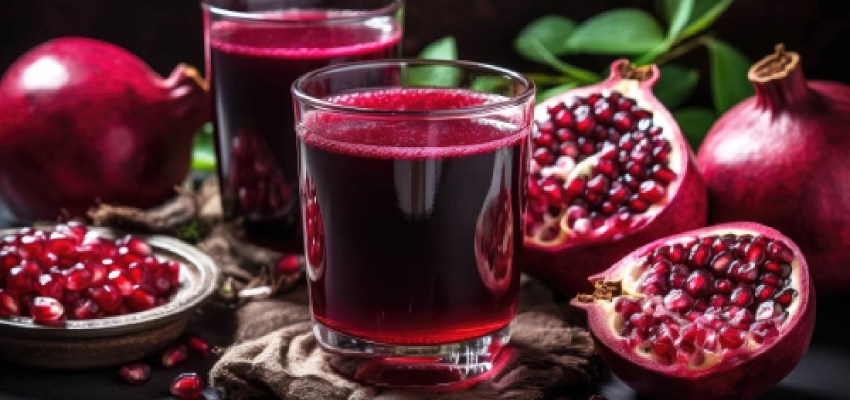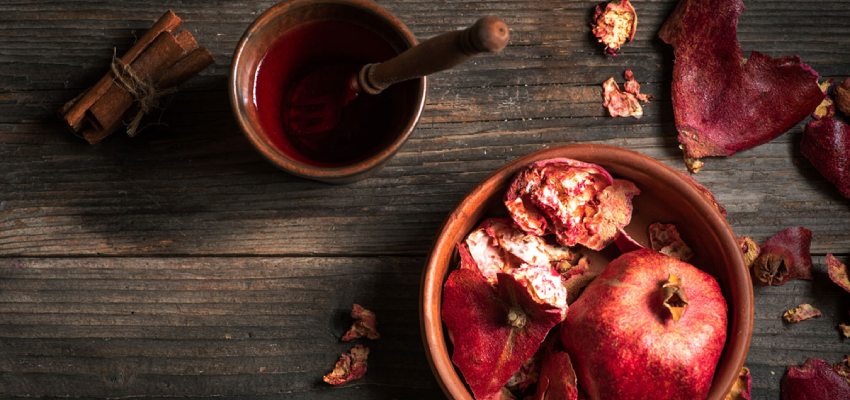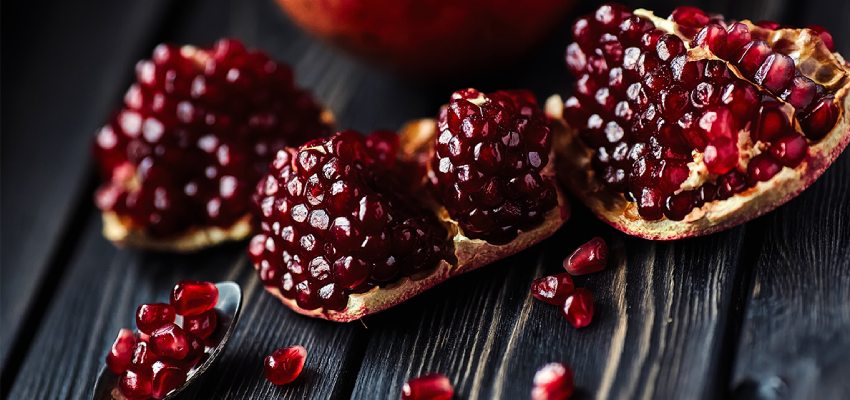Ayurveda, the old Indian wisdom handed over from ancestors, contains an amazing number of health treatments and pills.
From the literary perspective, pomegranate is very magnificent particularly in Hindi, Sanskrit, and several Indian languages where it is called dadima, dadim, and anar respectively.
Renowned for its lilac of health goodness, pomegranate is an ancient recipe with respect to popular healing practices such as Ayurveda. In this blog, we go on a path to discover the background of papaya which is rich in nutrients, followed by its therapeutic values which have remedies being practiced by many grandmothers known as “dadi mas”.
Exploring Dadima’s Origins
The pomegranate, a botanical name, Raja Baranee punium granatum, Phylogenetically has its origins in ancient Persia, however, it has been grown widely for thousands of years in the Mediterranean region, the Middle East and some parts of Asia.

In India, it is known as “dadimam” which means that the sprout is considered close to the status of the “grandparents’ ‘ in Indian literature and Ayurvedic texts.
Pomegranate is a fruit of great importance and various meanings for different cultures and languages from all over the world, just a symbol of fertility, abundance, and physical well-being.
Have a look at santalum album medicinal uses.
Nutritional Profile of Pomegranate
Beyond its ability to attract with its bright red arils and taste greener than its actual ripeness, this pomegranate is also the storehouse of vital nutrients and antioxidants, which are powerful.

Vitamins C, K, folate, potassium, and dietary fiber are all potent and enough to make the pomegranate proud as a source of it all.
If only to take the place of the seeds, or arils, which are full of powerful plant compounds like punicalagins and anthocyanins to explain their many health benefits.
Read about – Chavya botanical name
Health Benefits of Pomegranate in Ayurveda
Pomegranate has been appreciated as an herb with multiple beneficial effects in ayurvedic medicine for centuries.

As per ayurvedic texts, dadima is regarded as “sheetala” or cooling, hence it is highly effective in dealing with the excess heat and swelling in the body thereby balancing the various humors of the body.
Here are some key health benefits of incorporating pomegranate into your diet:
- Heart Health: In pomegranate the cardiovascular benefits are evident since the fruit behavior of lowering the blood pressure, reducing cholesterol levels,and generally improving the cardiovascular system function. The power pomegranate exerts due to the antioxidants it contains is to mitigate oxidative stress and inflammation that are extra major in heart disease growth.
- Digestive Health: Ayurveda attributes direction-based digestive capability to pomegranate. It’s thought to be a source of kindling the digestive fires known as “agni”, or aid in digestion. Pomegranate juice is often recommended for relieving the symptoms of indigestion, gas or bloating as well as colic due to the acid reflux.
- Immune Support: This fruit contains 80% of the recommended daily allowance for vitamin C and contributes to the ability of the body to fight off ailments such as infections and illnesses. With the role of pomegranate in your diet you will be building your body’s immune system and accordingly your capability to overcome health related challenges will be enhanced.
- Anti-inflammatory Benefits: Chronic inflammation is a pathogenic component of age-related diseases such as arthritis, diabetes, and cancer among others. Pomegranate’s anti-inflammatory substances are very strong, therefore, they provide effective relief from the inflammatory reactions and symptoms characterize inflammatory disorders.
- Skin Health: Pomegranate is a marvel of the beauty cosmetics, functioning both from the inside and outside when used topically. From free radical scavenging to collagen production to skin elasticity improvement, its powerful antioxidant account for all these skin boosting benefits. Pomegranates can be a fantastic ingredient when it comes to skin renovation and reinvigoration. This can give the skin a soft, supple, and radiant look.
Explore more about – Brihati plant
Incorporating Pomegranate into Your Daily Routine
Let’s get straight to the point we have just revealed the most impressive health properties of dadima, and now it’s time to make the most of this centuries-old super fruit fruit.

Here are some simple ways to incorporate pomegranate into your daily routine:-
- Savor a delicious bedding of pomegranate juice as an invigorating daily tonic in the morning or afternoon.
- Scatter fresh pomegranate arils on salads, into yogurt or oatmeal to break the monotony and add a delightful zip to your meal.
- Add pomegranate seeds to the smoothies or fruit salads to make them colorful as well as adding in much needed nutrients.
- Apply pomegranate molasses as a pleasantly sweet glaze to grilled meats or use it as an additive in marinades and dressings all the same.
- Search for new combinations of pomegranate with the other fruits like cream, sorbet, and granita in the name of tasty desserts.
Get information about – Brahmi scientific name
Conclusion
The mosaic of Ayurveda identifies the fruit, a pomegranate, as a conspicuous symbol of wellbeing, vivacity, and longevity.
While dadima dates back to the medieval period and is today highly revered even in wellness pointers, its intriguing history has led to numerous of its captivating aspects which some of them still being present at modern days.
With Dadi Mas’s inherited tips and our everyday consumption of pomegranate, we can help tapping its amazing potential of life energy thereby embarking on a holistic health journey.